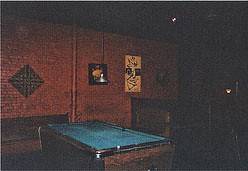
Currently riding the wave of
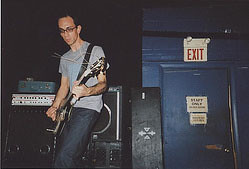
Its Double Dagger’s live show, however, where the band truly shines. Lead singer Nolen Strals chants and screams the lyrics as he jumps and contorts himself much like Cedric Bixler-Zalava did during his At The Drive-In years, although Strals adds humor and ironic sexuality into the mix by regularly venturing into the audience to cause consternation among its more fashion-conscious members. Wrangling sounds even more incredible than those on record, bassist Bruce Willen is only marginally more restrained than Strals, and drummer Denny Bowen (who replaced the energetic yet less technically skilled Brian Dubin in 2004), not only plays precisely, but with so much power that broken drum heads and other equipment issues are a typical occurrence. The sum of these parts elevate already hard-hitting songs like the Led Zep-gone-minimalist slam of “The Psychic,” the epic clash of hope and grief that is “Luxury Condos For The Poor,” and the tuneful frenzy of as-yet unreleased tracks like “No Allies” and “New Catalogues” to sublime levels.

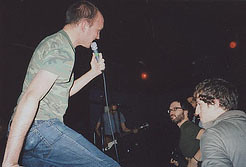
I had the chance to interview Bruce Willen via email recently, to gain some deeper insight into the band’s inspiration and plans for the future. Here’s what he had to say:
Bruce Willen: It's always cool when someone writes nice things about your band or album, if for no other reason than to get some form of feedback on your music. The publicity we've received this year hasn't been overwhelming or life-altering, and it hasn't affected our plans or approach as a band. Hopefully it's given a few new people a chance to hear our music.

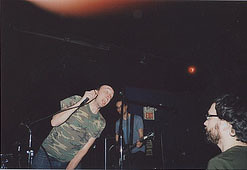
CUR: One of the most distinguishing aspects of Double Dagger is the absence of a guitar, and your bass work filling the sonic space that a lead guitar would take. Was this a conscious choice to play only the bass guitar, or did it happen by chance?
BW: When we were starting the band, we originally thought that we would have a guitar player. We weren't able to find someone who seemed to fit with the band's direction, so we wound up sticking with just a bass guitar. I had been experimenting with unorthodox bass set ups, and with the addition of some more amps we were able to fill out the sound enough so that a guitar wasn't necessary. It has been a challenge to write songs in a way that forces the bass playing to be dynamic and make up for the lack of guitar.

CUR:

BW: Denny was born in

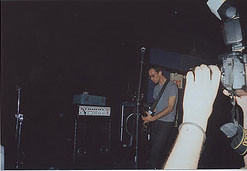
CUR:

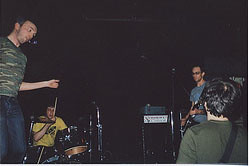
BW: Nolen and I started Post Typography as a label that encompassed our collaborative visual work. We began about six years ago (while still at MICA), doing projects after work and on the weekends--- mainly poorly-paying jobs like concert posters and band shirts. Within the past couple of years we started gaining some recognition within the design and art worlds, as well as some higher-profile jobs. Our work has been included in a few nice design books and magazines, and we've been asked to give artist lectures at various colleges around the country. We both were able to quit our day jobs last year to focus on Post Typography full time. We do a wide variety of work from magazine/newspaper illustrations to logo designs, book covers, and websites.
CUR: There's been a mention on your website about some 7" records coming in 2008. What can audiences expect on these new recordings, especially in light of Ragged Rubble's success?
BW: We have two 7"s coming out this Spring. The 7" on Toxic Pop Records features two unreleased songs from the Ragged Rubble recording session, Catalogs and Bored Meeting; and a remix of I Was So Bored I Wanted To Hang Myself on the Dancefloor on the B-side. Our friend Rowen Frazer did the remix, and it sounds great--- it's catchy and dancey, but not your typical remix.
The other 7" on Terra Firma Records will have a brand new recording of Luxury Condos For The Poor on the A-side and two new songs on the B-side. We've wanted to re-record Luxury Condos for the past year, because we play it much better now. This is the extended version of the song and the definitive recording of it.
No comments:
Post a Comment